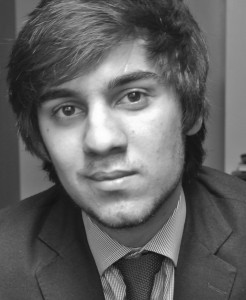
The ugly face of military fascism continues to show in Egypt, and if recent happenings are any indicator, the trend shows little sign of reversing. As reported in Al Arabiya, at least three Egyptians have been tried in military court since Morsi was deposed in July resulting in two suspended six-month jail sentences and another one-year sentence. This is on top of at least 112 recorded press freedom violations from 26 June to 26 August. Most recently, the suspension of Bassem Youssef‘s show revealed how iron-fisted the military is willing to be.
Of course, the military didn’t hand out the suspension themselves, but they didn’t have to. Shortly after the airing of the season premiere, CBC publicly announced their distance from Bassem Youssef in a statement that can only be characterised as either massive cowardice or willing complicity in aggressive state censorship. This happened in tandem with the launch of a public investigation into Youssef’s show, and culminated with the show finally being suspended before its second episode went live.
This past week also saw the complete self-lampooning of Egypt’s judicial system: reports alleging humiliation of Muslim Brotherhood leaders have arisen over the weekend, and the commencement of Morsi’s trial showed a complete inability on the part of the judiciary to maintain any sense of decorum. If there was any claim to judicial legitimacy left in Egypt, it has by now gone to pot.
These events all serve to wreck the very authority the interim government is keen to maintain. More troubling, the actions of the interim military government undermine their own ability to hold Morsi responsible for wrongdoings he and his administration may have committed during their year in power. If Morsi is guilty of the charges he faces, it stands to reason that his successors are guilty of worse. Criminals can’t deliver a credible conviction unto another, especially when they are themselves guilty of the same crime.
Yet the military continue to operate thinking that they can violently censor their way to continued power. Many have been quick to point out that the military’s current tactics herald the return of the same sort of military state that Egypt has long been plagued by. Indeed, Sisi and the SCAF seem intent on consolidating power through gradually purging dissenting factions. This tactic is bound to fail for a number of reasons.
First, as well argued by the Daily News Egypt’s own Sara Abou Bakr, too many old taboos that made such tactics possible in the past have now been broken. No longer do Egyptians fear the spectre of chaos, and the reality of military brutality is past the point of deniability. The country has moved no longer believes the false choice of, “Status Quo or Chaos” offered by every desperate dictatorship in its death-throes.
Second, in the past, Egypt’s military state was always under singular charismatic leadership, a luxury the SCAF no longer has. Nasser and Sadat had a cult of personality that was as much a natural phenomenon of their leadership style as it was the result of a concerted effort on the part of their administration. However, there is little that is natural about the rising cult of Sisi; it’s an even bigger fabrication than Mubarak’s in his final years.
Finally, and the military’s true fatal flaw, is a total misunderstanding of the Egyptian people. The military and its supporters seem to think that they are only purging the state of a few fringe elements and dissidents. In reality, the Brotherhood and its supporters represent a much larger portion of the population. Even leading up to Morsi’s ouster, in March of this year Pew Research found 63% of Egyptians still held a favourable opinion of the Muslim Brotherhood with 53% having a favourable opinion on Morsi himself. At the same time, 45% of Egyptians held similarly favourable views on the National Salvation front, and the country split almost 50-50 with their views of the Morsi constitution with 49% in favour and 45% opposed to the document.
A failure to recognise this political divide was the downfall of Morsi. He too thought that a policy of suppression and impunity could be successful, with little recognition of a highly polarised political scene. What unites Egyptians, however, is a strong desire for economic stability—unsurprising given the lack of real progress towards shared prosperity. Any future government must be able to bring these competing political elements together. They are far too large to simply be silenced and any leader who fails to recognise this is doomed to the same fate as their predecessors.


